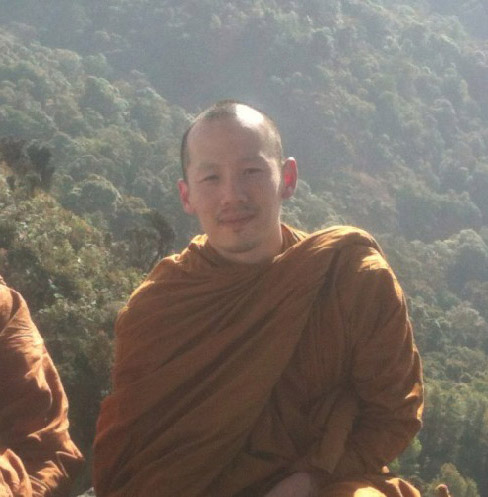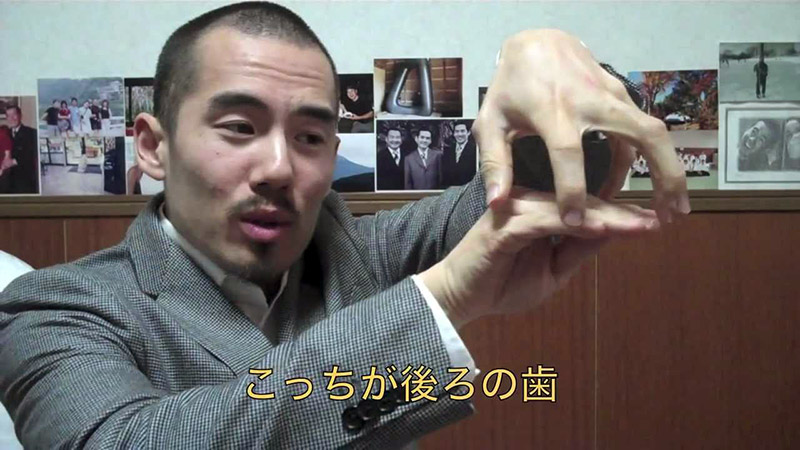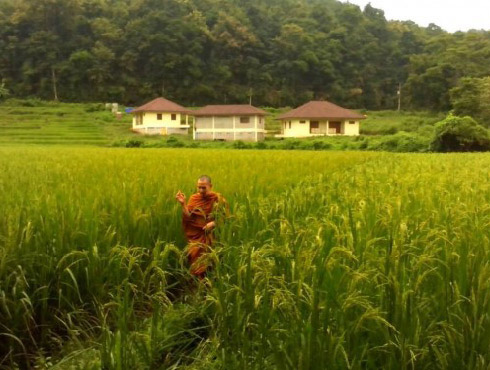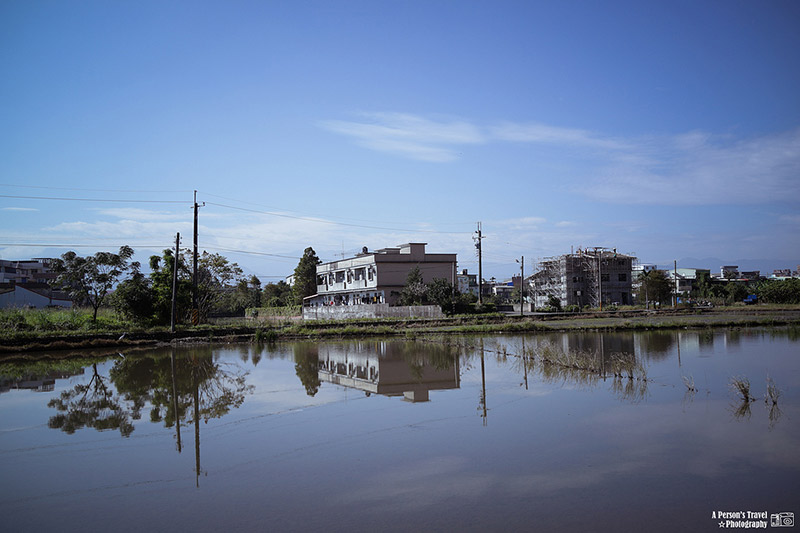"In a couple of days, I will be gone for 1 year to become a buddhist monk in a forest monastery" is the Twitter post from last year that explained why one of my favorite Japan-video-makers had been absent on Youtube for a while. His name is Miki Dezaki, or Medama-Sensei online, and he made a variety of videos, mostly during his time as an ALT in the JET Program. You've probably seen his stuff – a lot of the videos are funny, some of them are serious, and one even brought a bit of nasty attention from right-wing Japan nationalists.
The JET Program is a career option many Tofugu readers consider and pursue, and we write about it a lot. Since Miki spent five years on the program, as well as a bit of time in the international media spotlight, his insight seemed like something worth sharing. Also,going from the JET participant to monk-in-training is a rare career shift, and I wanted to hear how that went. I learned a lot from his experiences and I think you will too.
Some Background

The interview questions and some of Miki's answers will make more sense with a bit of background, so let me tell you, in short, about Miki's career.
Miki went to university in the U.S. as a physiology pre-med student. Seeing stressed-out doctors in his field of interest, he took up meditation during his sophomore year. Meditation changed his outlook on life and made him consider becoming a monk.
He studied abroad during his junior year at Hiroshima University and eventually decided not to go to med school. He applied for and recieved JET placement as an assistant language teacher (ALT) in Yamanashi prefecture, and after a few years transferred to an Okinawan school system.
Inspired by his experiences in Okinawa, Miki made youtube videos. His 'Racism in Japan' video sparked the attention of a persistent group of Japanese nationalists and brought him a lot of attention, even internationally. Shortly thereafter, he pursued his plan of training to be a monk in southeast Asia. Earlier this year, he returned to the U.S. to be with family and is contemplating grad school in Japan.
The Interview
I interviewed Miki over Skype, so the Q&A content is very conversational.
JET
Q: What made you decide to apply for JET?

I lived in Hiroshima for a year– decided I wasn't going to go to medical school because I'd already decided to become a monk. I was going to give myself five years, see if after five years I was still interested. You know, if I didn't meet an amazing girl or find my passion in life, or something else that would pull me away from being a monk. On top of that, it was a good time to pay off my school loans.
And, I was super interested in teaching Japanese kids. I love Japan, I love the Japanese students, I love Japanese people… and that's why it killed me so much to teach there. Because it almost feels like the school system's failing them. I'm sure I would feel the same way if I were teaching in America. It's just, you see it so clearly. You're like, okay, this teaching methodology is not working. Why are we doing this? Why are we wasting our kids' time? Seeing a lot of that stuff, it really kind of– I was actually depressed for a whole year, the first year I was in the JET program. I was in a kind of hard school –Everybody's school is different –but I was in a hard school because the teachers were really domineering… I didn't like that. I didn't like seeing that. They were yelling at the kids all the time.
If you teach on JET, I recommend trying to get into elementary or high school– I've taught at all levels. Elementary school tires you out, but you get so much energy from these kids. They are so happy, and the place is so wonderful– it's so bright. High school is great because it's like, people starting to move towards their actual futures. They have a lot of dreams and hopes and stuff like that. But the junior high school is like… it was hard for me. Basically, I chose to be a JET teacher because I wanted to teach Japanese kids stuff I've learned. I saw them strugglling so much. I thought I could help them a lot. In the end, I think I did help as much as I could. I did my best.
Q: What are your thoughts on English curriculum and the education system?
The way I see it is, the Japanese government doesn't care if Japanese people can speak English. They use English as a measuring stick to get people into college, basically, and their efforts to help English education by making it more mandatory … It's so half- what would you say- half-ass or, chuto-hanpa, is what we say in Japanese.
So, it's like it doesn't help at all. In my mind, everything that the Monbu-kagaku-sho does with English education seems to be just like tatemae. It makes the parents talk about it and say, "Oh, look, our government's trying to really help us." And I was like, no they're not. They don't care, to be honest. And that's my opinion, but I can say that, now that I'm not a JET.
So if you're thinking of trying to change the Japanese education system, you're gonna be really depressed like I was. [laughter]
Videos
Q: You made the Racism in Japan video at the end of your JET experience. What made you want to create that video?

[The] last lesson [I taught in] my JET career was racism and discrimination in general, and I used examples from Japan so that it hit home to them. [Japanese people] always think it's an American problem, so the only reason I used those examples for the students was just to get them to feel like, "Oh okay, this is something that is close to me." Especially because I was in Okinawa and this really was close to them, and they didn't even realize when they hear these stories about their grandmother and grandfather being treated poorly by the Japanese soldiers and stuff like that, they didn't make the connection that that was discrimination. When I said that to them, they were like "Whoa, okay," you know?
So, I did that lesson, and I was really shocked because the kyoutou sensei 教頭先生 came in and watched. After the lesson, she was like, "This lesson should be taught to every single kid in Japan." That gave me so much confidence. I got to teach it to all students in the school –to 900 students.
Basically the lesson was how discriminatory thoughts are developed through the media and your parents and wars and stuff like that. Then I gave examples from Japan and America, and I talked about how we could possibly make this better. The examples I gave in the Racism in Japan video– That was probably like a 4-5 minute video. That's all I talked about as far as examples in Japan in my class. So I talked about those things and the rest of the 45 minutes I talked about discrimination in general. So people thought I was saying that Japan is the worst country in the world. People thought my lesson to the students was about criticising Japan and teaching my students how bad Japan was, or how discriminatory and racist it was, whereas that was like five minutes of my whole lecture.
So anyway, I did the lesson, it was really successful, everyone loved it, no complaints from parents or anybody. The students would come up to me and be like, "That was amazing, Thank you so much, that really opened my eyes," because not only did I cover skin color discrimination, I covered discrimination based on sexual orientation and I showed them my "Gay in Japan" video.
Have you seen the Ohayou Ojisan video? He is basically a super famous guy but all he does is say hello to people, and people think he's like the biggest weirdo in the world. I interviewed him and he was really intelligent and speaks really good English and everybody was so shocked by that. I was like, "Look at how much you've discriminated against this guy without even ever talking to him. You've only heard stuff about him, " and so that was a big lesson to them. They were like "Yeah, we totally did. We thought that he was a total creep and weirdo, because my mom told me that," and when you see him on screen, he seems like the nicest guy in the world. So that was my lesson.
Q: So when did you make the video? And how did the attention, especially the negative attention, affect you?
I go home to America, feeling pretty good, and then I felt like I just needed to share this with the world because it got such a good response. I released that video Feb 14– I left to be a monk March 1. Between those two weeks, I did not sleep at all. I was trying to respond to people who were commenting, who were super angry, getting emails. Every morning I would get a couple emails from my past coworkers telling me to take the video down. People were saying things like, "The Kyouikuchou 教育長 (Superintendent of Education) is super pissed, he's coming to the school. The government might cut the JET program because of this." And I was like, what? Just from my video? They were like, "This is serious. We're getting calls every single day from these nationalists, telling us to take down the video."
And I was online, looking at all these blogs the nationalists were posting, and it was all my information, where I worked, where I lived, really kind of creepy stuff. Meanwhile, I'm working full-time, trying to close up shop, pass my work on to someone else, and packing my life for a year to be a monk in Asia. I was the most stressed out person in the world in those two weeks.
As a monk, I realized how jaded I had become by it. I had grown this thick skin… somehow it really kind of deeply affected how I could feel — I didn't feel innocent anymore. I didn't have this innocent joy anymore. It was like, "Man this is hard. Life is hard."
I felt a little betrayed by the teachers who were doing this to me. Like, "Okay, you guys are willing to call me and stress me out, and it's all because of these people you don't even know, these crazy nationalist people … and you guys can't stand up for what you believe in at all just because you don't want to deal with it. And I would tell them, look as teachers, as educators, I kind of expect more from you, to be honest. To try to censor another person's voice is not a good message that you're giving to your students.
Q: I hear that it takes a lot of work to be a teacher in Japan– I thought it's supposed to be a really respected position.
They're so afraid, I don't understand why, but they're so afraid of causing any more trouble, I guess. They'll wait until other people get my back, and then they'll go in. Even if they want to, they're hesitant to do that first.
I had a very strong kind of belief that freedom of speech is very important and I don't know if they believe that.
Q: If people can celebrate that ideal– freedom of speech– shouldn't it be okay to disagree?
But Japanese culture is a lot of keeping secrets and "We shouldn't talk about those things," like, "Let's not talk about all the war atrocities we've committed, we'll just forget about 'em, it's not a big deal." It's bad to generalize, but people don't want to talk about that stuff. I understand that, it brings up a lot of guilt and past emotions. It's like, what can you do about it? You're gonna talk about it now and what's gonna happen? Nothing; it's in the past. That's their mentality about it and it kind of makes sense too. Why keep opening the wound? I mean, Americans love to do that. I think, we expect something like what Germany did– where they're totally super sorry. But that's not gonna happen with Japan.
In the Ministry of Education there is a man who was actually one of the high officers that conducted all the tests in Unit 731. So obviously, he doesn't want that stuff in the textbooks. I know that sounds like conspiracy stuff, but it's true.

Can I recommend a documentary? The Emperor's Naked Army Marches On. It's amazing. It's about this other thing that just shows you the Japanese attitude about war and about what they did and how they're dealing with it now. They're like, "Oh that's just in the past, let's not talk about it." I think every Japanese person should watch it.
Meditation/Buddhism
Q: As a monk, you had a very established physical location to do your meditations. How do you do that in other places?

My technique is – it's not my own creation, you know, people have known about this for centuries. It's more of a mindful living type of technique. I still do sitting meditation and walking meditation, but I think the most useful practice that you can have is being mindful all the time. And what I mean by that is, as I'm talking to you, I am aware of my feet, I'm aware of how my hands are moving right now, I'm aware of, you know, how my voice sounds right now and how my chest feels and my stomach… This is the type of awareness that you try to develop, so that you can be aware all of the time. And watching your mind as you're doing this stuff, so not only are you feeling the sensations in your body but you're also aware of the thoughts in your mind as you're doing anything.
I think it's a very difficult practice and I'm not a master at it — it's something that I'm constantly trying to develop more and more because it's so easy to get distracted by things in daily life. So when I was a monk, yes, I sat in meditation for probably like –when I wasn't doing intensive meditation– a regular day was probably like seven or eight hours of mediation.
Q: Continuously?
No no no, like one hour, then break, and then one hour and then break. But in between those breaks, a lot of people just, "Psh!", let it go- but the most important thing is, from the time that you stop sitting mediation to the next sitting meditation or walking meditation you are trying to keep that continuity of mindfulness or awareness. So, that's what I'm doing, since the time I left the temple. I'm trying to keep that continuity of awareness even as I'm helping my father or talking to you or whatever. That, I think, is my main practice. Sitting meditation is important, but this kind of meditation is much more important to me. Not only does it help you to become aware of your surroundings and what's happening but it helps you to make better choices in your life and actions and stuff like that.
One very important aspect of this practice is mindful speech. So, I really try not to say harsh words now, like cuss words. I really try not to gossip, I try not to criticize, you know. And this is all very difficult for an American person, especially for [me, being] very analytical. So this is just being aware of that stuff, and it's a very difficult practice.
Q: In an interview with the Yoshi Didn't podcast, you said that becoming a monk was something you'd thought about doing for five years. How did that decision process work?
Five or six seriously, but I had been meditating for ten years. When I was a pre-med student, I met a lot of doctors, and I could see how stressed out they were, so I was like, "Okay, I need to learn how to deal with stress." It just so happened I found this "Free Meditation for Stress" class at my university. It was like once a week. And you know, at the beginning, you just kind of like, just sit and kind of relax, I guess.
And then… at one point, probably like two months after I started, I had this incredible experience. I was just doing breathing meditation and all of a sudden my whole body like disappeared basically, and my ego and thoughts just went away, and I was like the embodiment of love and compassion. It was the most amazing, happiest moment of my entire life. After I came out of the meditation, I was like, "This is what, not only am I looking for, this is what everybody in life is looking for," I think. I was so content. I was 100% content. I didn't need anything at that point. I was full of love and I loved everything – you know, not just my family, but every thing, every being. And the more I did meditation, it kind of developed. It just kind of made sense to me: if I had the capability to love everything, then why not become a monk?
Q: So it wasn't a faith-based decision?
Maybe I should consider myself a Buddhist, because I was a monk, but I don't have that much faith, you know? There are people that have really strong faith; they almost look up to the Buddha as a god, which — he wasn't meant to be that way, but some people take him that way. For me, it's more like this super interesting journey into my mind and to learn about myself. And I really believe if you have inner peace, that will permeate and radiate out of you and you can affect people that way. I don't think you can fight for peace when you're super pissed off at other people.
Reflection

After the interview, I contacted Miki again for updates. There was one: "I reached out to some of my former co-workers," he wrote, "and I am really happy to say that we were able to put this stuff behind us and continue our friendship."
Again, I write a big thank you to Medama Sensei for taking the time to share his experiences: THANK YOU!
I'm on the JET Program now and can concur, from my limited experience, that racism definitely seems to be an "only outside of Japan" problem in the minds of many Japanese people I've met, children and adults alike.
Thankfully, the atmosphere around English education, at least, is an ever-evolving part of curriculum policies — not just in Japan –and so I'm having a much more optimistic experience on that front, and so are most other ALTs that I know. If you're considering using English-teaching as a career ticket to Japan, the good news is that you will definitely learn about Japan if you get that job. In doing so, however, you may be challenged in a lot of the ways this interview brought to light.
